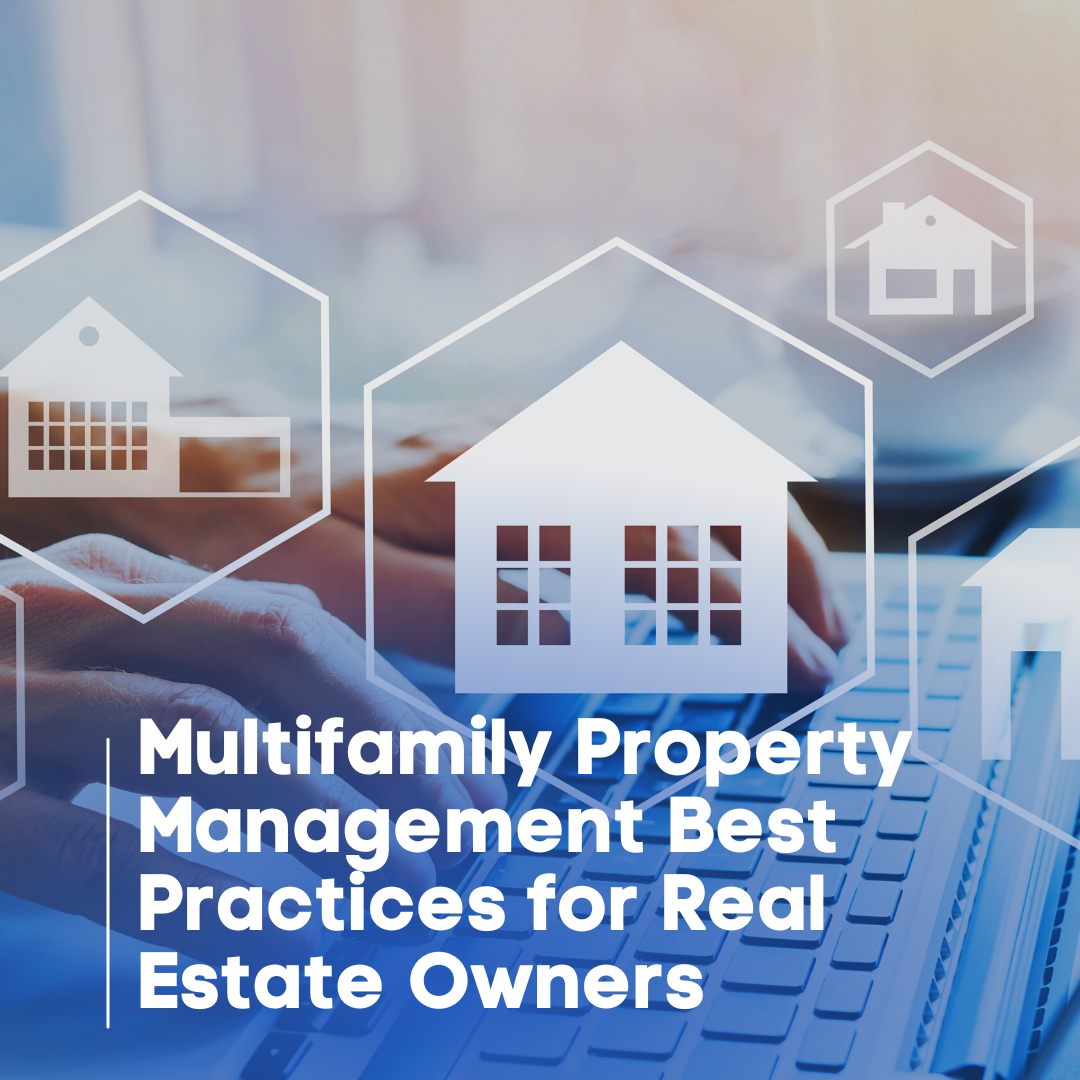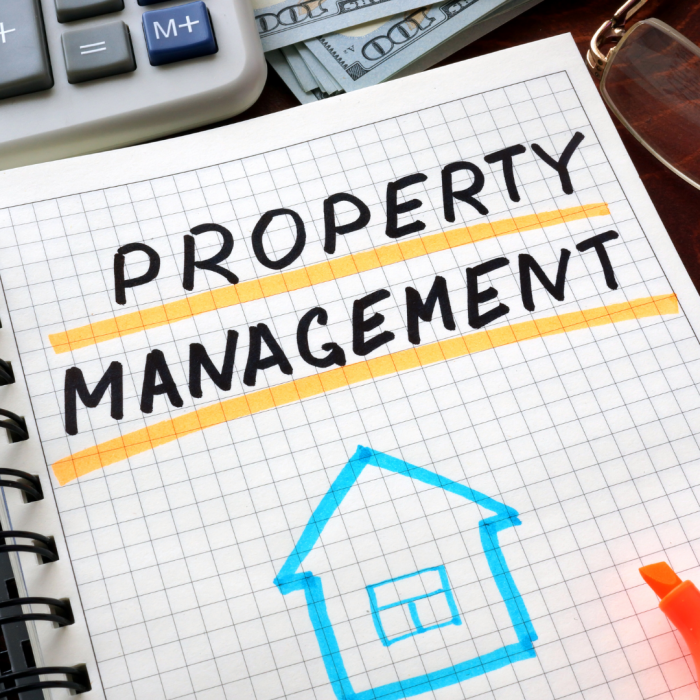
Multifamily Property Management Best Practices for Real Estate Owners
October 12, 2017 3:28 pm 1 CommentAll multifamily real estate owners need to know and understand how to have the best property management! The property management that you move forward with will determine your resident satisfaction, your continued property value, and so much more. There are so many ways that the right property management company and strategy can boost your community into unprecedented growth.
In contrast, there are many ways that property management mistakes can leave your property with poor reviews, unhappy residents, and a lower property value. Learn how you can determine what is effective management and as a property owner, discover what needs to happen to have successful management.
Effective property management ensures the proper maintenance and upkeep of the property is happening, which helps to preserve the property value over time. Good property management also plays a pivotal role in creating a desirable living environment and reducing tenant turnover.
The national average tenant turnover rate is around 50%, with significant variations depending on location and property type.
There are also many financial responsibilities that property management takes on and can either help improve or deflate. Strategic property management involves continuous improvement and adaptation to market trends, ensuring that the property remains competitive and resilient in a dynamic real estate landscape.
Join me as we explore the multifaceted world of property management, where I’ll share insights from my journey in the industry.
What does property management consist of?
The importance of good property management can’t be overstated! To ensure that your current and future management is effective, it’s essential to understand what it consists of. Be sure to expand your knowledge on how property managers can change a community so that you can measure your property’s success! Below are the main responsibilities of multifamily property management:
- Maintenance and Repairs: Property managers are responsible for regular upkeep and timely repairs to ensure the property remains in good condition, preserving its value and appeal.
- Tenant Screening and Placement: Thoroughly screening potential tenants to select reliable and responsible occupants, minimizing risks and ensuring a stable rental income.
- Rent Collection: Establishing efficient rent collection processes to ensure on-time payments and maintaining consistent cash flow.
- Financial Management and Budgeting: Developing and managing budgets, tracking income and expenses, and planning for long-term financial sustainability.
- ROI: A key goal in property management is achieving a strong ROI through cost-effective operations and strategic tenant engagement.
- Performance Metrics: Regularly monitoring property performance metrics helps in identifying areas for improvement and driving operational efficiency.
- Legal Compliance: Staying informed about and adhering to local, state, and federal real estate laws and regulations to avoid legal issues and liabilities.
- Tenant Relations: Establishing open communication channels with tenants, addressing concerns promptly, and fostering a positive living environment to reduce turnover.
- Lease Enforcement: Ensuring that lease agreements are enforced, and addressing violations or breaches fairly and consistently.
- Property Marketing: Effectively marketing vacant units to attract potential tenants and reduce vacancies. Partnering with a multifamily marketing agency can significantly boost your property’s online presence, attracting more potential tenants.
- Risk Mitigation: Identifying and mitigating potential risks, including implementing safety measures and insurance coverage.
- Technology Integration: Utilizing property management software and technology tools to streamline processes, enhance efficiency, and improve overall management effectiveness.
- Inspections and Assessments: Regularly inspecting the property to identify maintenance needs, safety concerns, and potential issues before they escalate.
- Community Building: Fostering a sense of community among tenants through events, communication, and amenities, contributing to a positive living experience.
- Emergency Response Planning: Developing and implementing plans for emergencies, ensuring the safety of tenants, and protecting the property.
- Record Keeping: Maintaining accurate records of all transactions, communications, and property-related documentation for legal and financial purposes.
- Market Analysis: Staying informed about market trends and conducting periodic analyses to make informed decisions regarding rent adjustments and property improvements.
- Occupancy Rate: Focus on occupancy rate optimization through targeted marketing and tenant satisfaction to maintain a steady revenue stream.
- Continuous Improvement: Regularly evaluating and updating property management strategies, adapting to changes in the real estate market, and implementing best practices for ongoing success.

What makes the best property manager?
Not all property management brings the same results. The best property manager brings a diverse set of skills and qualities that contribute to effective and efficient real estate management. You need property managers who have strong communication and who are great at decision-making. An ideal company will build positive relationships with tenants, address concerns promptly, and foster a sense of community within the property. It is crucial that multifamily property managers are extremely organized, professional, and have a deep understanding of local real estate laws and regulations.
As modern-day property management evolves, tech-savviness is increasingly important. However, perhaps the most important skill when it comes to finding the best property manager is a proactive approach to problem-solving contributing to long-term success. The multifamily world of real estate is always changing and it often requires new skills and the ability to continue growing. No two days look the same for any property, and it’s important to have individuals who can be flexible and grow with the property.
What is the biggest responsibility of property managers?
The biggest responsibility for property managers is arguably the optimization of property value and tenant satisfaction. The truth is, this is a very multifaceted role that includes various tasks amidst many different areas. Property managers have to take responsibility for the physical condition of the property, tenant relationships, community building, budgeting, rent collection, and so much more. Additionally, they have to take responsibility for legal regulations and minimize legal risks. In short, there are many different areas where any property management company needs to truly shine, to help the property grow.
Do property managers often specialize in one type of property?
Property managers often specialize in one type of property, depending on their expertise and the specific needs of the property owner or management company. The different types of property can include residential, commercial, industrial, or retail properties. Within residential real estate, property managers may further specialize in managing single-family homes, apartment complexes, condominiums, or vacation rentals. Commercial property managers may focus on office buildings, retail spaces, or industrial properties. As you deeply contemplate the right property management company, it’s crucial to examine the previous specialties that will allow them to best serve your community.

How To Create a Comprehensive Property Management Plan
As a multifamily real estate owner, it’s important to spend time creating a property management plan. This includes guidelines and goals that your chosen property management company can use. It can consist of your property vision and also include the things that you want to accomplish! However, take assurance that the best property management companies have likely been in the industry for a very long time, and will help you know what you can do to improve your community. Through collaboration and review, you can ensure that you’re on the right track to elevating your property as a whole. Follow the outline below to create the best property management!
A. Developing a clear property management strategy
Developing a clear property management strategy is fundamental to effective real estate ownership. This involves defining specific goals, outlining operational procedures, and establishing a roadmap for achieving success. A comprehensive strategy should encompass key aspects such as tenant relations, maintenance protocols, financial planning, and legal compliance. By having a well-defined property management strategy, owners can proactively address issues, optimize performance, and work toward the long-term sustainability and success of their real estate investments.
B. Setting performance goals and benchmarks
Property owners need to define specific, measurable, and achievable objectives to gauge the effectiveness of their management efforts. These goals may include maintaining a certain occupancy rate, reducing maintenance response times, or optimizing financial metrics.
Average occupancy rates for multifamily properties in urban areas hover around 95%, while suburban properties may see slightly lower rates. Establishing these targets not only motivates management teams but also facilitates a systematic evaluation of progress. Take the time to regularly review with your team and use the data to give you a path to improvement.
C. Proactive maintenance planning
Proactive maintenance planning is a crucial aspect of effective property management, emphasizing a strategic and preventive approach to property upkeep. Rather than reacting to issues as they arise, property managers with a proactive mindset anticipate potential maintenance needs and address them before they escalate. This involves scheduling regular inspections, identifying areas that require attention, and implementing preventive maintenance measures. By staying ahead of maintenance issues, property owners can extend the lifespan of assets, reduce repair costs, and enhance overall tenant satisfaction. Proactive maintenance planning not only ensures the physical well-being of the property but also contributes to a positive living experience for tenants!
What function of the property manager is most important to the property owner?
While all functions of a property manager are important, the one that is often considered most crucial to property owners is financial management. Ultimately, you want your property value increase and for your ROI to always be growing. Property owners rely on effective financial management to ensure that their real estate investment is not only generating income but also operating efficiently. This includes tasks such as rent collection, budgeting, expense tracking, and financial reporting.
A property manager’s ability to optimize revenue, control costs, and provide transparent and accurate financial information directly impacts the owner’s return on investment. Sound financial management not only contributes to the property’s profitability but also allows property owners to make informed decisions about the property’s long-term financial health. As a multifamily real estate owner, the financial skills and proficiency of your property managers should always be front of mind.
How To Find The Best Property Management Company
For any multifamily owner, one of the most crucial decisions that you will make is determining which property manager you will move forward with! Learn how you can find the best property management to help your property continue to gain momentum.
Define Your Needs
- Clearly outline your expectations and requirements, including the type of property you own, your budget, and specific services you need. The more clear you can be, the better you will know if you are the right fit.
Research Local Companies
- Look for property management companies in your local area. Local expertise can play a huge role in helping make your property successful! Check online reviews, ask for recommendations from other property owners, and explore their reputation in the industry.
Verify Licensing and Credentials
- Ensure that the property management company is licensed and has the necessary credentials to operate in your location. This helps to guarantee their professionalism and adherence to industry standards.
Interview Multiple Companies
- Talk to several companies to understand their services, fees, and management approach. Ask about their experience with similar properties and request a reference! Don’t make your decision after only speaking with one company.
Check References
- Reach out to current and former clients of the property management company to get feedback on their experiences. This provides insights into the company’s track record and reliability. You can also review online reviews of current properties that they manage!
Review Contracts Thoroughly
- Carefully examine the terms and conditions outlined in the property management agreement. Pay attention to fees, termination clauses, and the scope of services provided.
Visit Properties Under Management
- If possible, visit other communities managed by the company to assess their condition and how well they are maintained. This can give you a tangible sense of the company’s capabilities. It can also give you a clear depiction of their success or downfalls.
Understand Communication Channels
- Clarify how the property management company communicates with property owners and tenants. Review their strategy for marketing communication and resident communication alike. Effective communication is crucial for any successful partnership!
Evaluate Technology Use
- Properties using advanced management software report a 20-30% increase in operational efficiency. Inquire about the technology tools and software the company uses for property management. A tech-savvy company is likely to provide more efficient and transparent services, and it’s also essential to understand what types of software are being used.
Consider Fees
- While cost is an important factor, it’s essential to balance it with the quality of services offered. Review the fee structure and ensure it aligns with your budget and expectations, and how you plan to grow your property.

Improving The Resident Experience
The best multifamily property management consists of both a strategic and comprehensive approach to tackle many challenges that arise! However, the most important thing that any property management can do is to create a community. Whether it be through effective rent collecting, awesome resident events, special amenities, or more, the vision should be to improve the resident experience.
With a better resident experience, comes greater community positivity which leads to more property value and longevity, and less vacancy. Ultimately, with all of the things to take care of, considering the resident experience is of the utmost importance.
Categorised in: Apartment Marketing
This post was written by Isabella Housel
Isabella Housel is a passionate and versatile professional writer with a deep love for words and a commitment to crafting compelling content that engages, informs, and inspires. With many years of experience in the industry, she has honed her skills across various genres, from creative storytelling to informative articles and technical documentation.






1 Comment
If the rental properties are vacant it is like dead money. Thank you for the money-saving tips. This is for sure going to help landlords.